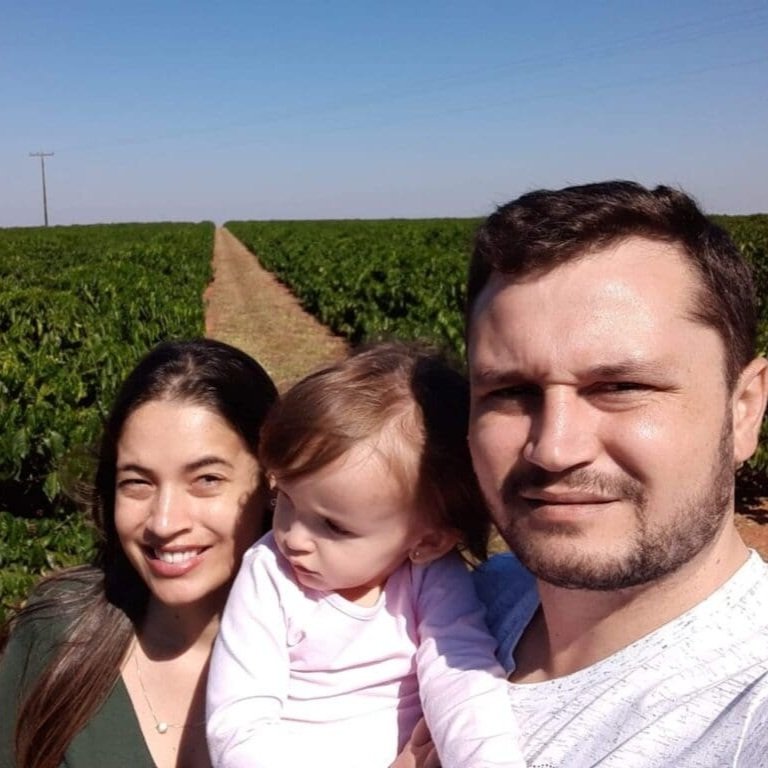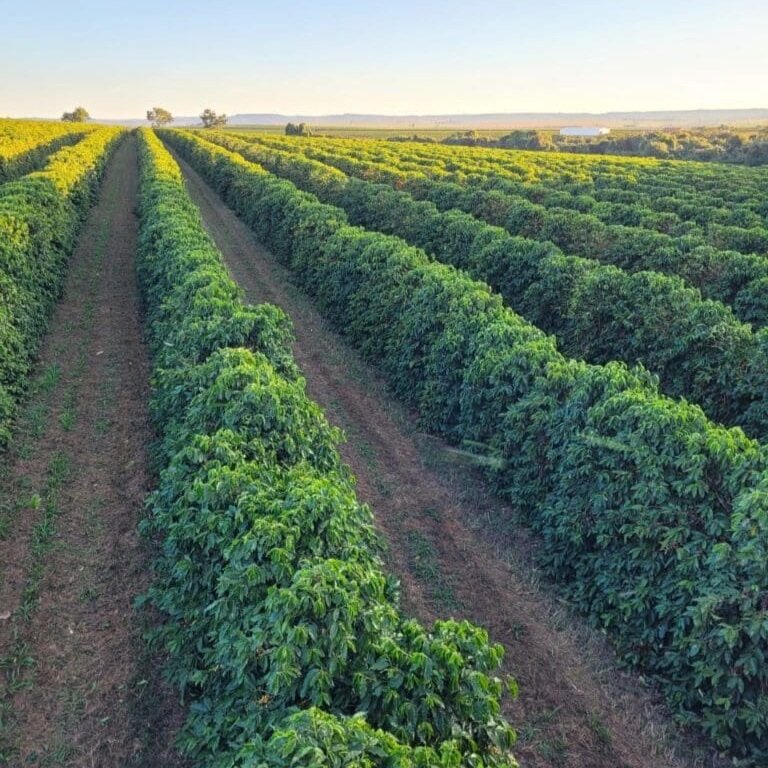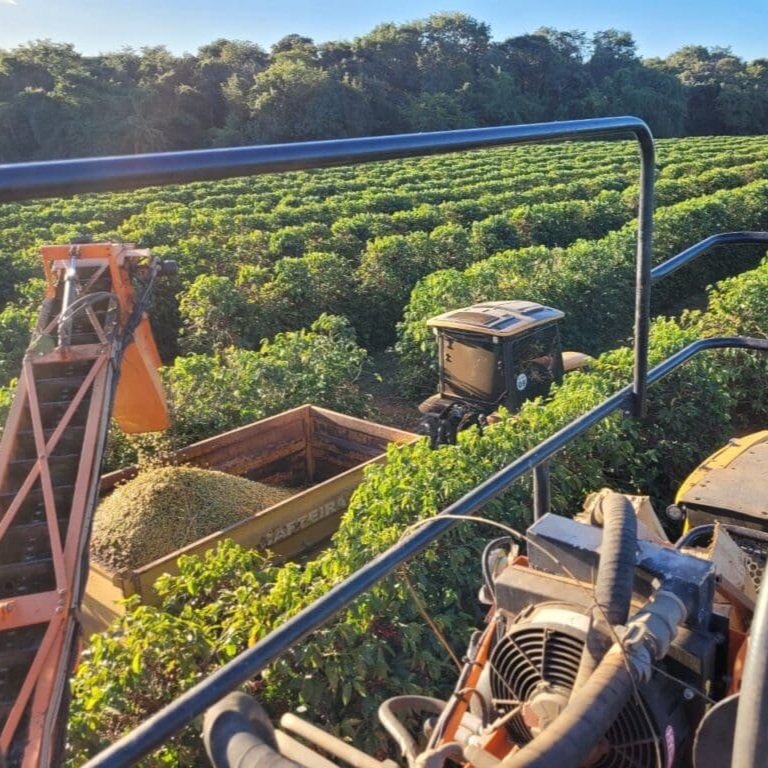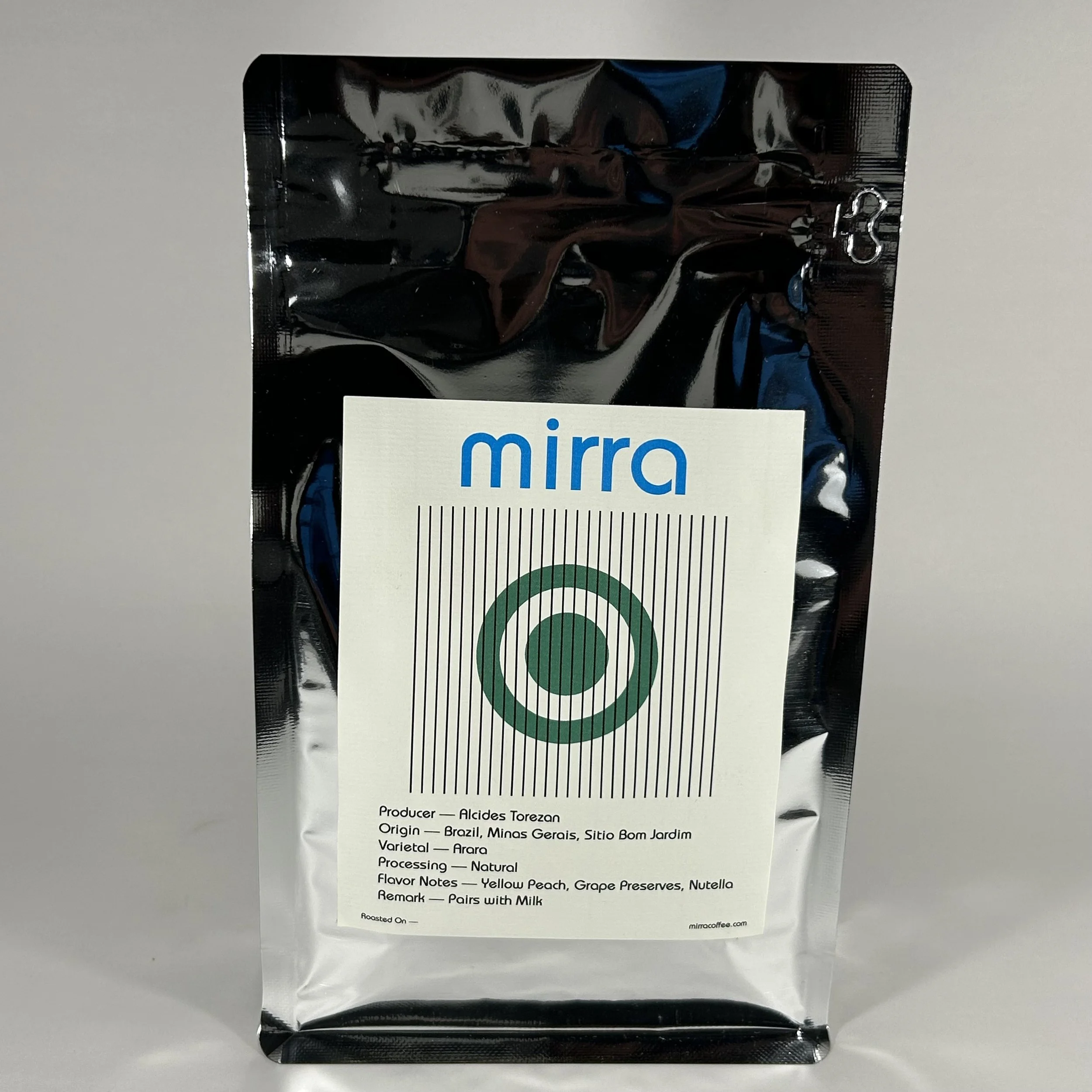 Image 1 of 3
Image 1 of 3

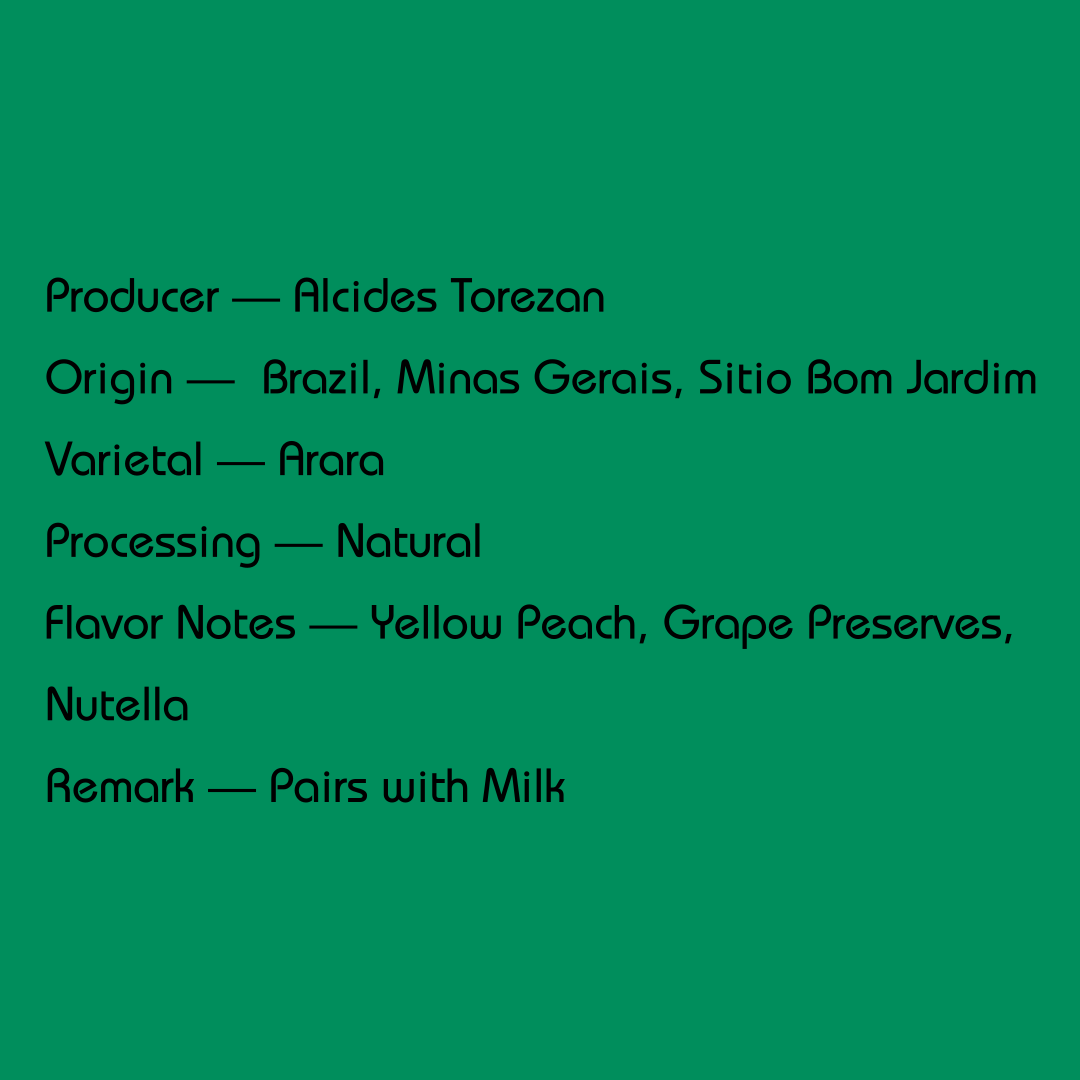 Image 2 of 3
Image 2 of 3

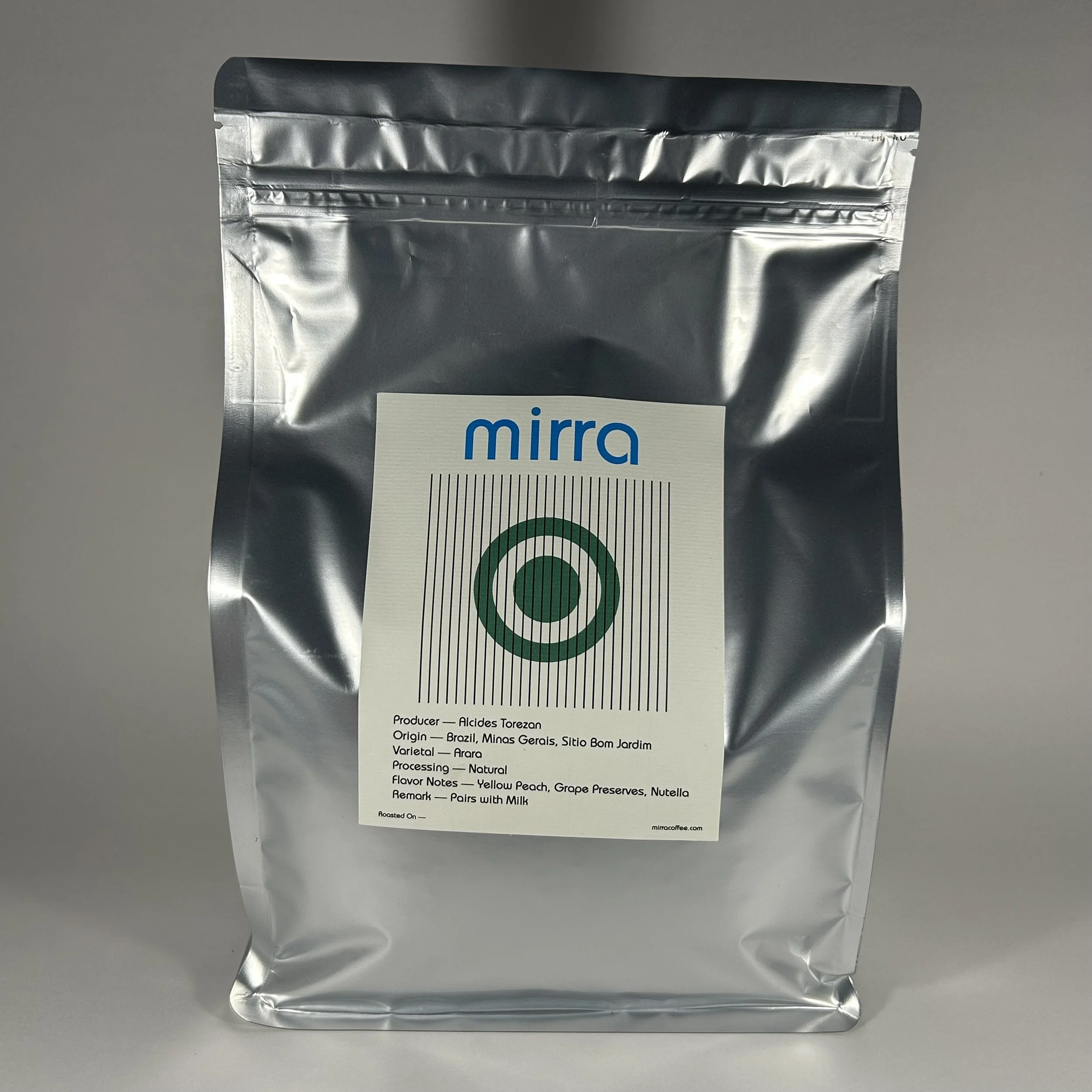 Image 3 of 3
Image 3 of 3




Brazil Alcides Torezan
We are glad to reintroduce our white coffee line of offerings—coffee that takes well to milk—with this rich, sweet, and subtle natural arara from producer Alcides Torezan, grown on his farm, Bom Jardim, in Minas Gerais, Brazil. This coffee presents that classic deep chocolatey, nutty profile upfront, which reminds us immediately of nutella, while boasting a surprising degree of fruits which manifest in the form of a syrupy, nectar-quality of fresh yellow peach and more tame, subtle grape preserves. This is a cup that has the complexity to be enjoyed as is, black, as well as the robustness to be stretched with milk, if that’s more your cup of tea.
Sitio Bom Jardim was established in 2017 by Leandro Gomes, who partnered with his friend Ronianderson de Souza, and a number of other local producers—including Alcides Torezan—allocating each management of certain parcels of their farm. They began by cultivating soybeans, sorghum, and corn to prepare the soil for coffee cultivation, which they began in earnest in 2017, when they planted their first 19 hectares of coffee; they then expanded this planting in 2018, and again in 2020. Today, the farm encompasses a total of 120 hectares, 73 of which are dedicated to coffee production.
Arara is a natural cross between obata (a hybrid of timor hybrid and villa sarchi) and yellow catuai (a member of the bourbon-typica group and a hybrid of mundo novo and caturra), and was first released in Brazil by the Fundação Procafé following 15 years of study. Since its release, it has become increasingly popular among Brazilian producers, due to its potential for high cup quality—with many recent Cup-of-Excellence-winning lots being composed of arara—as well as its relatively high yield and resistance to leaf rust and other diseases. Compared to many other varietals common to Brazil, arara ripens relatively late in the harvest, with this slower maturation being responsible for its superior quality in the final cup.
All coffee is sold whole-bean to reduce oxidization, and increase the longevity of volatile organic compounds.
We are glad to reintroduce our white coffee line of offerings—coffee that takes well to milk—with this rich, sweet, and subtle natural arara from producer Alcides Torezan, grown on his farm, Bom Jardim, in Minas Gerais, Brazil. This coffee presents that classic deep chocolatey, nutty profile upfront, which reminds us immediately of nutella, while boasting a surprising degree of fruits which manifest in the form of a syrupy, nectar-quality of fresh yellow peach and more tame, subtle grape preserves. This is a cup that has the complexity to be enjoyed as is, black, as well as the robustness to be stretched with milk, if that’s more your cup of tea.
Sitio Bom Jardim was established in 2017 by Leandro Gomes, who partnered with his friend Ronianderson de Souza, and a number of other local producers—including Alcides Torezan—allocating each management of certain parcels of their farm. They began by cultivating soybeans, sorghum, and corn to prepare the soil for coffee cultivation, which they began in earnest in 2017, when they planted their first 19 hectares of coffee; they then expanded this planting in 2018, and again in 2020. Today, the farm encompasses a total of 120 hectares, 73 of which are dedicated to coffee production.
Arara is a natural cross between obata (a hybrid of timor hybrid and villa sarchi) and yellow catuai (a member of the bourbon-typica group and a hybrid of mundo novo and caturra), and was first released in Brazil by the Fundação Procafé following 15 years of study. Since its release, it has become increasingly popular among Brazilian producers, due to its potential for high cup quality—with many recent Cup-of-Excellence-winning lots being composed of arara—as well as its relatively high yield and resistance to leaf rust and other diseases. Compared to many other varietals common to Brazil, arara ripens relatively late in the harvest, with this slower maturation being responsible for its superior quality in the final cup.
All coffee is sold whole-bean to reduce oxidization, and increase the longevity of volatile organic compounds.
